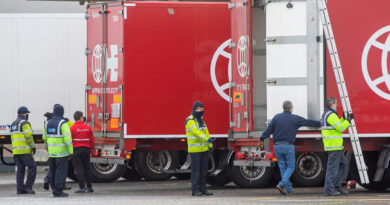Illegal Migration Act: Parts should not apply in NI, judge rules
A significant setback for the UK government unfolded as a judge at Northern Ireland’s High Court ruled against large portions of the Illegal Migration Act, citing violations of human rights laws and the Windsor Framework. The Windsor Framework, established as part of the post-Brexit agreement between the UK and EU, safeguards the rights enshrined in the Good Friday Agreement, a pivotal peace accord in Northern Ireland.
The ruling casts doubt on the viability of the government’s plan to deport certain asylum seekers to Rwanda, a strategy intended to curb English Channel crossings. While Parliament designated Rwanda as a safe country, legal hurdles have stalled the implementation of this aspect of the act.
In a blow to the government’s stance, the judge found that elements of the act significantly diminish the rights of asylum seekers in Northern Ireland under the Good Friday Agreement. The legal challenge, brought by the Northern Ireland Human Rights Commission and a 16-year-old asylum seeker from Iran, underscores concerns over the impact of the Illegal Migration Act on asylum seekers in the region.
Despite the ruling, Prime Minister Rishi Sunak reaffirmed the government’s commitment to proceed with deportations to Rwanda, emphasizing the need to deter illegal migration. He pledged to defend the government’s position, signaling a potential appeal against the court decision.
The judgement’s implications extend beyond Northern Ireland, raising broader questions about the legality and ethics of the government’s Rwanda deportation plan. Critics argue that the plan undermines fundamental protections for refugees across the UK and may face further legal challenges in the future.




